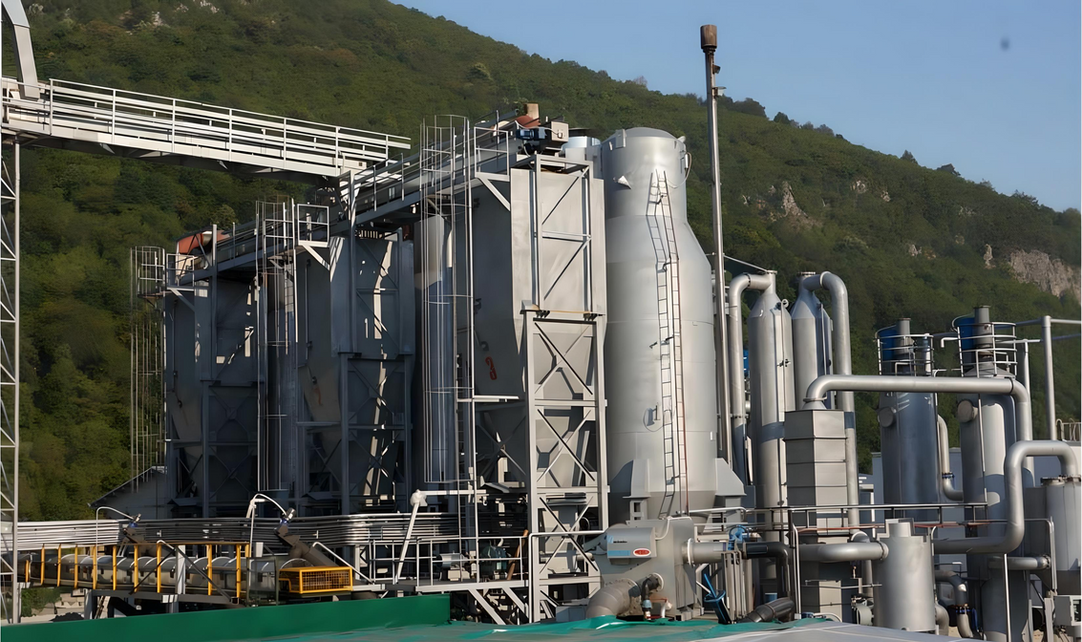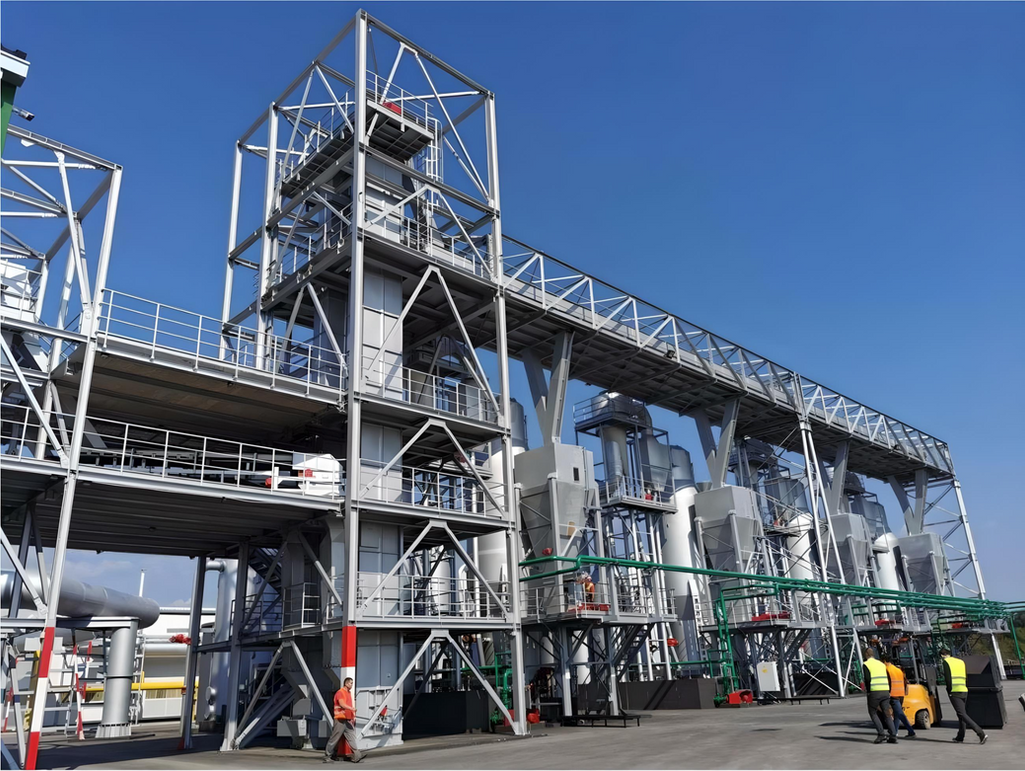

Municipal Solid Waste (MSW) Gasification
Municipal Solid Waste (MSW) gasification is a process that converts solid waste materials, such as household trash, into usable energy sources like syngas, heat, or electricity.
Introducing Fengyu's state-of-the-art Municipal Solid Waste Gasifiers—an advanced solution adept at managing various waste types such as MSW, RDF, Industry Waste, and Medical Waste. Our innovative gasification technology effectively converts diverse waste streams into valuable energy resources, emphasizing sustainability and environmental responsibility.
Flow Chart
Flow Chart of Pyrolysis Treatment

MSW Pyrolysis Gasification Treatment Principles


Note: This flow chart is subject to changes based on varying circumstances and the specific requirements of our valued customers. Please be aware that updates and adjustments maybe necessary to ensure the most accurate and tailored design for each unique situation.
Parameters of MSW Gasifiers
MSW Gasifier

Waste Processing Capabilities

-
Municipal Solid Waste (MSW):
Typically originating from households, MSW encompasses a variety of everyday items such as packaging, food scraps, yard waste, and household items like clothing, bottles, and newspapers. The heterogeneous nature of MSW makes it a challenging waste stream that we are equipped to manage efficiently.

-
Refuse-Derived Fuel (RDF):
RDF is produced by sorting and processing municipal solid waste with the removal of recyclable and non-combustible materials. The resulting waste—often including plastics and biodegradable organic matter—is shredded and treated to create a fuel source with significant energy recovery potential.

-
Industrial Waste:
Consisting of waste from industrial or manufacturing operations, industrial waste encompasses a diverse array of materials including paper, chemicals, metals, and industrial by-products. It varies widely depending on the industrial sector and specific production processes.

-
Medical Waste:
Medical waste is generated from medical and biological activities, such as the diagnosis and treatment of humans or animals. It includes items like used needles, gloves, bandages, and expired drugs, and can contain potentially infectious agents.
Note: Our compatible feedstock extends beyond the listed items.
Please contact us for more information on raw materials.
Advantages
-
Enhanced Emission Control: By maintaining precise control of the combustion temperature, we significantly reduce the production of fly ash and capture heavy metals more effectively. Our process ensures that nitrogen oxides (NOx) and dioxins are minimized, contributing to cleaner air quality.
-
Residue Management: The majority of sulfur (S), chlorine (Cl), and phosphorus (P) present in waste are retained in the bottom ash. This containment reduces the release of sulfur oxides (SOx), hydrogen chloride (HClO), and phosphorus oxides (POx) into the atmosphere.
-
Economic Efficiency: The design of our treatment facilities requires a lower initial investment, ensuring that sustainable waste processing solutions are more accessible. Additionally, the operating costs are reduced due to the efficiency of the process and the generation of valuable by-products, such as syngas.
-
Energy Recovery: The combustible gases produced are utilized in two key ways. Firstly, for direct combustion to eliminate dioxins and, secondly, after purification, as a fuel for gas generators, boilers, and industrial furnaces. This dual application demonstrates our commitment to maximizing energy recovery and efficiency.
Typical Application

-
Isolated and Remote Communities:
For islands and remote locations, where traditional waste disposal and energy procurement are challenging, this technology offers a self-sufficient solution. It can reduce the volume of waste that requires long-distance shipping and can generate local energy, reducing reliance on imported fuels.

-
Urban Centers:
In densely populated urban areas, this technology can help manage the large quantities of waste generated daily. It can alleviate the pressure on landfills and contribute to the urban energy mix, supporting the grid with the electricity produced.

-
Industrial Complexes:
Industrial entities that produce significant amounts of waste can utilize this technology on-site. It can convert their waste into energy directly, offering a way to lower operational costs and reduce the environmental impact of waste.

-
Energy-Deficient Areas:
Regions with limited access to conventional energy sources can employ this technology to create a reliable, local source of electricity from the waste they produce, thereby enhancing energy security.

Get a Quote
Geleshan Industrial Park, Shapingba District, Chongqing, 400037, China
WhatsApp: 206-355-9941




